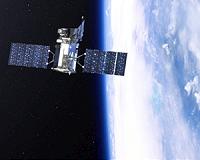| . |  |
. |
Berlin, Germany (SPX) Mar 03, 2011 The brightness of the nightly sky glow over major cities has been shown to depend strongly on cloud cover. In natural environments, clouds make the night sky darker by blocking the light of the stars but around urban centers, this effect is completely reversed, according to a new study by a group of physicists and ecologists at the Free University of Berlin (FU) and the Leibniz-Institute of Freshwater Ecology and Inland Fisheries (IGB). "We found that overcast skies were almost three times brighter than clear at our rural location, and ten times as bright within the city itself," says the lead author of the study, Dr. Christopher Kyba, physicist at the Institute for Space Sciences at the FU. Their research was reported on March 2nd, 2011, in the open access journal PLoS ONE. "The astronomers who founded the study of light pollution were concerned with how sky glow obscured the stars on perfectly clear nights," says Kyba, "and researchers studying the potential influences of sky glow on human or ecosystem health often cite the results from satellite measurements taken on clear nights. What our study shows is that when considering biological impact on humans and the environment, the amplification of light pollution by clouds is large, and should be taken into account." The study compares measurements of clear and cloudy sky brightness data taken using "Sky Quality Meters" during five months in the spring and summer of 2010. Two monitoring stations took data at locations 10 and 32 km from the center of Berlin. "Recognition of the negative environmental influences of light pollution has come only recently," says Dr. Franz Holker, ecologist, study author, and project leader of Verlust der Nacht (VdN - Loss of the Night). "Now that we have developed a software technique to quantify the amplification factor of clouds, the next step is to expand our detection network. The Sky Quality Meter is an inexpensive and easy to operate device, so we hope to recruit other researchers and citizen-scientists from around the world to build a global database of nighttime sky brightness measurements."
Share This Article With Planet Earth
Related Links Public Library of Science The Air We Breathe at TerraDaily.com
 Glory Promises New View of Perplexing Particles
Glory Promises New View of Perplexing ParticlesGreenbelt MD (SPX) Feb 21, 2011 Climatologists have known for decades that airborne particles called aerosols can have a powerful impact on the climate. However, pinpointing the magnitude of the effect has proven challenging because of difficulties associated with measuring the particles on a global scale. Soon a new NASA satellite - Glory - should help scientists collect the data needed to provide firmer answers about t ... read more |
|
| The content herein, unless otherwise known to be public domain, are Copyright 1995-2010 - SpaceDaily. AFP and UPI Wire Stories are copyright Agence France-Presse and United Press International. ESA Portal Reports are copyright European Space Agency. All NASA sourced material is public domain. Additional copyrights may apply in whole or part to other bona fide parties. Advertising does not imply endorsement,agreement or approval of any opinions, statements or information provided by SpaceDaily on any Web page published or hosted by SpaceDaily. Privacy Statement |